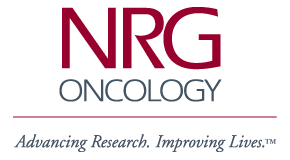

NSABP Members' Area
Password Protected - Access
Limited to NSABP Participating
Institutions Only
NSABP Foundation, Inc.
General NSABP Information
Financial Conflicts of
Interest Policy
Contact the NSABP
Employment

Clinical Trials Information
Clinical Trials Overview
Protocol Chart
Never Say Lost
Treatment Trials Information
Protocol B-51
Protocol B-52
Protocol B-53/S1207
Protocol B-55/BIG 6-13
Prevention Trials Information
Protocol P-1 - BCPT
Protocol P-2 - STAR
To report problems, ask
questions or make comments,
please send e-mail to:
Webmaster@nsabp.pitt.edu
Findings From Recent National Surgical Adjuvant Breast and Bowel Project Adjuvant Studies in Stage I Breast Cancer
Fisher B, Jeong JH, Dignam J, Anderson S, Mamounas E, Wickerham DL, Wolmark N
Journal of the National Cancer Institute Monogr (30):62-66, 2001
Abstract
Before 1989, credible information about the treatment of breast cancer was derived mainly from randomized clinical trials that enrolled women with either metastatic (stage IV); locally advanced (stage III); or primary, operable, axillary lymph node-positive (stage II) disease. This report provides information from six recent National Surgical Adjuvant Breast and Bowel Project (NSABP) trials involving lymph node-negative (stage I) patients. Findings from NSABP B-13 demonstrated, through 14 years of follow-up, improvements in disease-free survival (DFS) and overall survival from methotrexate and fluorouracil (MF), regardless of age, in women with estrogen receptor (ER)-negative tumors. Results from NSABP B-19, which was conducted with similar patients, demonstrated, through 8 years, a greater overall DFS and survival advantage with cyclophosphamide and MF (CMF) than that observed with MF. Findings from NSABP B-23, in which patients similar to those in B-13 and B-19 were randomly assigned to receive CMF plus placebo, CMF plus tamoxifen (TAM), doxorubicin (Adriamycin) and cyclophosphamide (AC) plus placebo, or AC plus TAM, demonstrated no difference in relapse-free survival (RFS) or overall survival among the four groups through 5 years, either for all patients or relative to age. NSABP B-14, which was carried out in women with ER-positive tumors, compared the outcomes of those who received either placebo or TAM. Through 14 years, superior DFS and overall survival advantages, as well as a reduction in contralateral breast cancer, were observed with TAM. No additional benefit resulted from TAM administration beyond 5 years. Findings from NSABP B-20, a second study conducted in patients with ER-positive tumors, showed, after 8 years, both a DFS and an overall survival advantage from TAM plus either MF or CMF over that achieved with TAM alone. A recent meta-analysis in women with negative lymph nodes and either ER-negative or ER-positive tumors of less than or equal to 1 cm in size was conducted using patients from five NSABP trials. After 8 years, the RFS in women with ER-negative tumors was greater in the group treated with surgery and chemotherapy than in those who underwent surgery alone. In women with ER-positive tumors, RFS and overall survival advantages were observed from the addition of chemotherapy to TAM when that treatment regimen was compared with TAM alone. In addition, evidence has been presented from NSABP B-21, a trial evaluating radiation therapy (XRT) and/or TAM for the prevention of ipsilateral breast tumor recurrence (IBTR) after lumpectomy in women with tumors less than or equal to 1 cm. Findings have shown that XRT is superior to TAM and that XRT + TAM is superior to XRT alone for preventing IBTR. The findings demonstrate that chemotherapy and/or hormonal therapy is effective for the management of women with negative axillary lymph nodes and either ER-negative or ER-positive tumors. Because it also has been proven effective in women with tumors less than or equal to 1 cm, such therapy might also be considered in the treatment of that patient population.
B. Fisher, D. L. Wickerham, N. Wolmark, National Surgical Adjuvant Breast and Bowel Project (NSABP), Pittsburgh, PA.